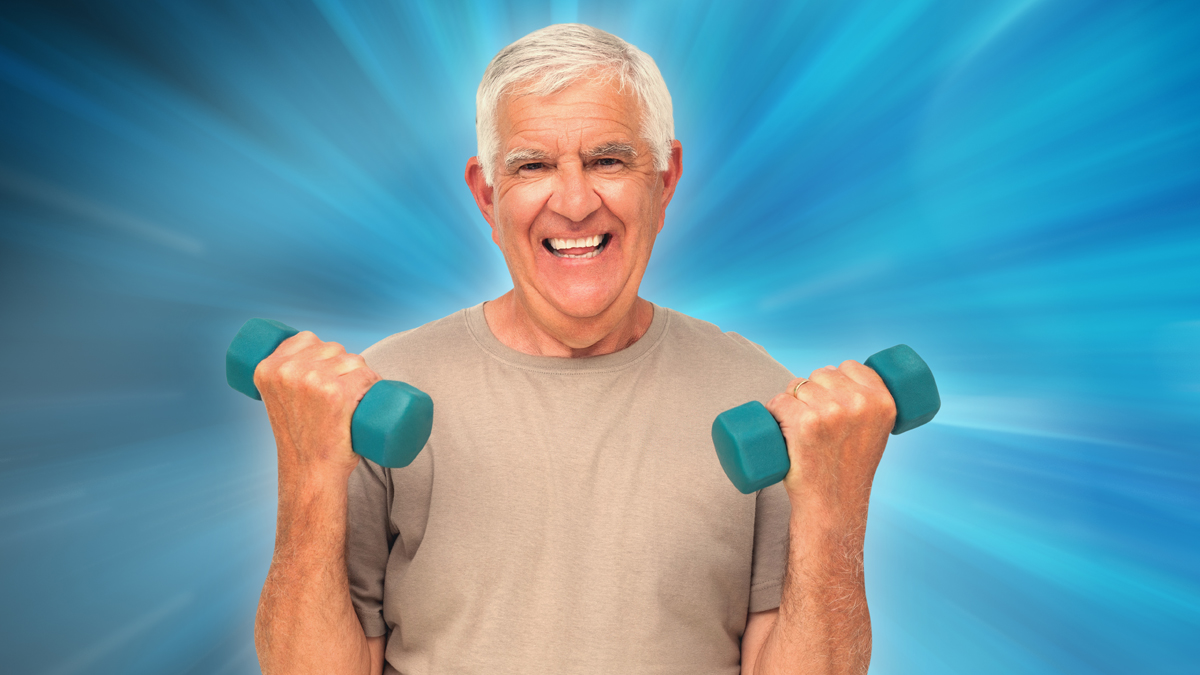In the early 1980s, Upstate South Carolina resident Louie Lewis was visiting his parents in Taylors when his 68-year-old father stood up, stretched and moaned, “Oh, my aching body.”
“And I said, ‘Well, dad, maybe you should take up a good weight-training program,’” Lewis recalled. “And he sort of gave me the evil eye because he knew I was trying to be funny. But since I’m almost the same age now as he was then, I’m at the point of taking my own advice.”
This is not without good reason, because as seniors are soon projected to constitute the nation’s largest age group, fitness experts are strongly recommending some form of weight training for seniors of any age to preserve youth, activeness, strong bones and an overall healthy mental outlook.
“Our musculoskeletal system dictates how our bodies function in every way,” said Dr. David Carter, owner of Apogee Therapy Center, a private business in Greenville and Spartanburg specializing in many forms of physical therapy and recovery. “So if you have a strong musculoskeletal system, you’re going to have a strong cardiovascular system as well because you’re working those muscles to get them strong.”
Carter pointed out that while weight training for older adults often gets overlooked as a regular way to keep bones and muscles strong and in tone, their use is just as important as when people are in their teens.
“As we get older, the stability of our bones and joints starts to reduce,” he said. “And after the age of 40, we start to lose about 1 percent of muscle mass each year, which really adds up as you get into your 60s and 70s.”
It’s an attitude shared by many of Carter’s colleagues, such as Casey Powers, DPT, with Ascent Total Performance in Columbia.
If you go to Powers for physical therapy, not only will he treat you the same as a high schooler looking to get stronger, but he will also probably not be influenced by your age at all.
“I have utilized weight training with clients up to age 92 so far,” he said. “I don’t believe there is an age where we should stop resistance training.”
He echoed Carter in approaching strength as a key component of functional capacity, especially if you are a senior.
“The biggest misconception is that weight training is too intense for older adults,” Powers said. “But as long as exercise techniques are good and a person can safely perform them, continuing to perform relatively intense exercise is beneficial for anyone. In fact, if we continue to underdose our older adults when it comes to exercise, we are actually doing them a disservice. The key is meeting a client where they are, maintaining a safe environment and progressively pushing strength and endurance from that point.”
So what can you expect if you get senior weight training through someone like Carter or Powers, or even just manage a workout routine on your own?
Numerous benefits, which are likely to be more important and top of mind after passing age 55. These benefits include:
• Recharging Metabolism. Resistance training increases your energy use during exercise, and both the muscle recovery and rebuilding period, up to three days after each workout.
• Reducing Fat. While it’s normal for most people to accumulate fat or extra weight as they age, basic weight training can hold extra waistline inches in check for a long time.
• Resisting Diabetes. In a 2019 study, researchers with the Mayo Clinic determined that having a moderate amount of muscle strength can lower your risk of developing type 2 diabetes by 32 percent.
Increasing Bone Density. ‘Stressing your bones’ might sound like something to avoid, but properly applied in weight training, this kind of stress can help increase both muscle mass and bone mass. And both are critical to keeping your musculoskeletal system strong and resistant to injury.
Enhancing Mental Health. Similar to wanting to look your best in your younger years, weight training in your older years can not only give you the same sense of confidence it also doesn’t require a major time commitment.
“People sometimes think they have to spend three hours at the gym to gain some sort of strength,” Carter said. “But 10 minutes of squats, push-ups or anything you can do physically to increase your heart rate is going to make a difference. The awesome thing about the body is that if you work a muscle, it’s going to adapt. And every single patient who has come to me for any kind of physical therapy has either wanted or needed some form of weight training.”
By L. C. Leach III







